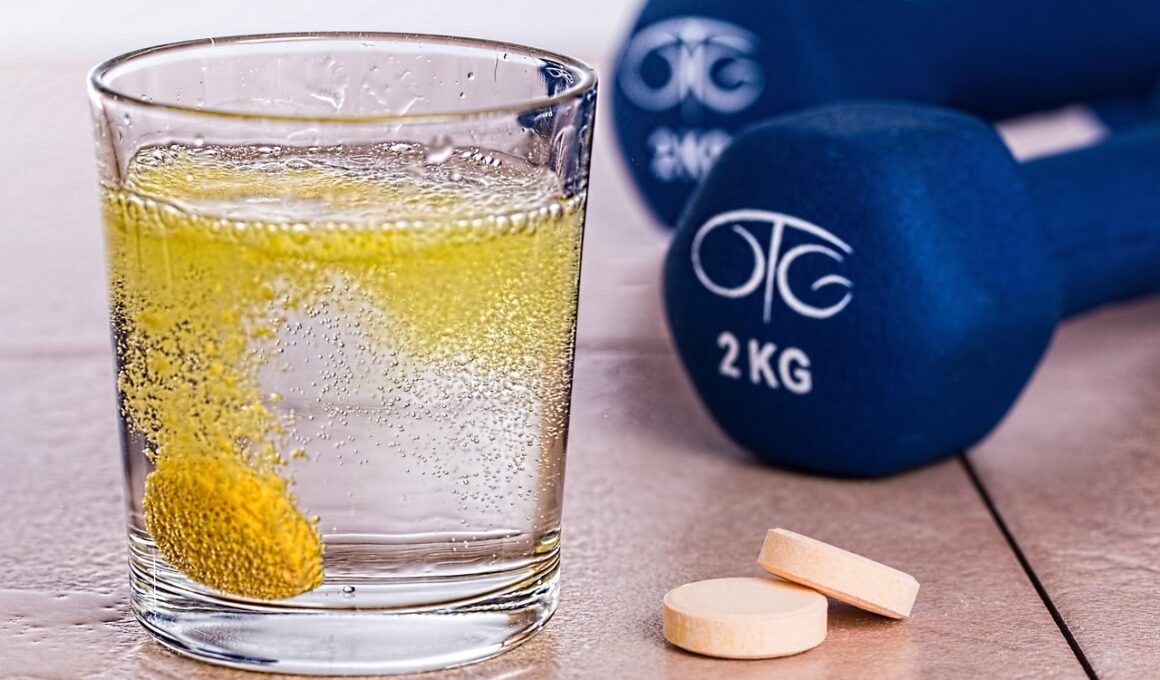The Role of Supplements During OMAD
The One Meal a Day (OMAD) regimen presents unique dietary challenges, especially concerning nutrient intake. While OMAD can lead to significant weight loss and promote metabolic health, it is vital to ensure your body receives adequate nutrition. Given that you are consuming only one meal per day, it can be difficult to pack all necessary vitamins and minerals into that single sitting. Therefore, dietary supplements may play a crucial role in helping complete deficiencies. Care must be taken to select high-quality supplements that address your individual health needs. Always consider consulting a healthcare professional or nutritionist before starting any supplement plan, as they can provide tailored guidance and help monitor your progress. Additionally, understanding the types of nutrients you’re missing is essential. For some, it may be vitamin D, while others might need more omega-3 fatty acids or probiotics. Tailoring your supplement regimen can help ensure you meet your health goals while adhering to OMAD, gearing you for a successful journey. Ensuring proper hydration and balance of micronutrients is fundamental for reaping OMAD’s benefits.
To maximize the health benefits of OMAD, understanding specific supplements is crucial. Multivitamins can act as a safety net for individuals on this diet, as they ensure you meet your daily vitamin and mineral needs. One should opt for a high-quality multivitamin that contains essential nutrients like vitamins A, C, D, E, and B-complex. Furthermore, omega-3 fatty acids may also be beneficial, especially if your diet lacks sufficient fish intake. Omega-3s promote heart health, brain function, and even reduce inflammation in the body. Consider supplements like fish oil or flaxseed oil as viable options. Probiotics can support your digestive health, which is particularly helpful when following a restrictive eating regimen. They aid in gut flora balance, improving your digestive health and nutrient absorption. Additionally, minerals like magnesium and zinc can also be supplemented, as they are vital for energy production, muscle function, and overall well-being. Taking these specific supplements can enhance your OMAD experience, ensuring you avoid common pitfalls often associated with restrictive diets.
Hydration is another important consideration when adopting an OMAD approach. While it may be easy to overlook water intake throughout the day, dehydration can lead to fatigue, headaches, and reduced concentration. Incorporating electrolyte supplements can help maintain hydration levels and support muscle function, especially during the fasting period. Electrolytes like potassium, sodium, and calcium are essential for overall body function. Consuming sports drinks, electrolyte powders, or sugar-free electrolyte supplements can provide necessary replenishment without adding calories. Aside from supplements, consider hydrating foods during your meal, enriching your meal with fresh fruits and vegetables. Staying hydrated helps maximize energy levels and enhances workout performance. It is also advisable to enjoy herbal teas and bone broth, which are hydrating and fitting into OMAD. Each individual’s needs can vary based on physical activity levels and health goals. Therefore, monitoring your hydration status should be part of your regular routine. Maintaining proper hydration while on an OMAD diet will optimize energy, support recovery, and amplify overall health.
Supplement Timing and Meal Planning
Timing your supplements appropriately is also critical to achieving the best results with OMAD. Taking specific supplements at particular times can significantly enhance their effectiveness. For instance, taking fat-soluble vitamins (like vitamins A, D, E, and K) with your meal will increase absorption, due to dietary fats consumed during the meal. Consider taking multivitamins during your one meal to take advantage of this. Additionally, certain supplements, such as proteins and BCAAs (Branched-Chain Amino Acids), can improve muscle recovery and support performance. These can be taken before or after workouts, depending on your goals. Pre-workout supplements or energy boosters consumed before exercise can help enhance performance during your fasting period. Post-exercise, replenishing your body with protein can be achieved through whole foods or protein powders included in your meal. Planning and taking supplements at the right time will leverage their benefits. Recognize how your meal timing correlates with supplementation, and adjust accordingly to meet your health objectives.
In summary, adopting OMAD requires diligent planning to ensure nutritional needs are met. Supplements facilitate this process, helping fill potential gaps rather than replace healthy eating. When undertaking OMAD, focus on whole foods during your single meal, prioritizing fruits, vegetables, lean proteins, healthy fats, and whole grains. Simultaneously, selectively include supplements to assist with specific deficiencies. Utilize nutrient-dense foods to make that one meal fulfilling and satisfying. It may be wise to experiment with different supplement types to determine the most beneficial for your body, as individuals may respond uniquely to specific products. Customizing your supplement routine while adhering to OMAD’s guidelines can optimize your nutrient intake while supporting energy levels and overall health. Above all, consistency in both dietary choices and supplementation will yield the best results. Be aware of how your body reacts when integrating new supplements and adjust accordingly. Focus on being intuitive about your needs while maintaining the benefits of OMAD. Balancing food intake with smart supplementation can truly ensure a successful and health-boosting experience.
Consultation with Health Professionals
While supplements can be beneficial, it is important to discuss your plans with a healthcare professional. This step ensures you avoid potential interactions with medications and provide a personalized approach to your diet. A registered dietitian or nutritionist can evaluate your nutritional status and suggest appropriate supplements based on your unique health profile. They can also guide you in making informed choices about your meal contents, maximizing the nutrients absorbed through OMAD. Furthermore, monitoring your progress with a healthcare professional is essential. This can include regular health check-ups to assess your blood work, nutrient levels, and overall health status. Such insights enable adjustments to supplements and diet as needed. Recognizing that individual dietary needs vary widely is key. Your supplement needs may differ significantly from others on OMAD depending on factors like age, activity level, and any pre-existing health conditions. Establishing a routine with supplementation while considering expert guidance will enhance your success on the OMAD diet.
Finally, embracing the OMAD diet while incorporating supplements can lead to positive health outcomes when done thoughtfully. Be patient with the process as bodies need time to adapt to dietary changes. Monitoring how various supplements affect your energy levels, mood, and overall well-being will be pivotal. It may be worthwhile to document your experiences, making note of progress, and any adjustments required along the way. Furthermore, integrating feedback from health professionals and research findings can polish your approach, ensuring you optimize both one meal and supplements. As you navigate your OMAD journey, focus on staying informed about personal nutrition, as this education will empower your choices. Engaging with online communities can also provide motivation and support, sharing experiences related to supplementation and weight loss on OMAD. Participating in discussions can yield new insights, leading to refined dietary habits. Staying committed to both your diet and the supplementation will help sustain momentum. And remember, balance, patience, and persistence pay off in achieving long-term health and wellness goals while on the OMAD diet.
In conclusion, the One Meal a Day diet can be effectively complemented by appropriate supplementation. It’s essential to strategically choose supplements that fit within your specific dietary requirements, filling nutritional gaps that may arise from limited meal frequency. Most importantly, consider whole foods as your primary source of nourishment while using supplements to boost performance and well-being. Remember to consult healthcare professionals to tailor your supplement intake correctly. The successful partnership of OMAD and effective supplementation could be your gateway to improved health, weight management, and sustained energy levels. By taking these insights into account, you can navigate OMAD with confidence and clarity, leading to positive lifestyle changes.


